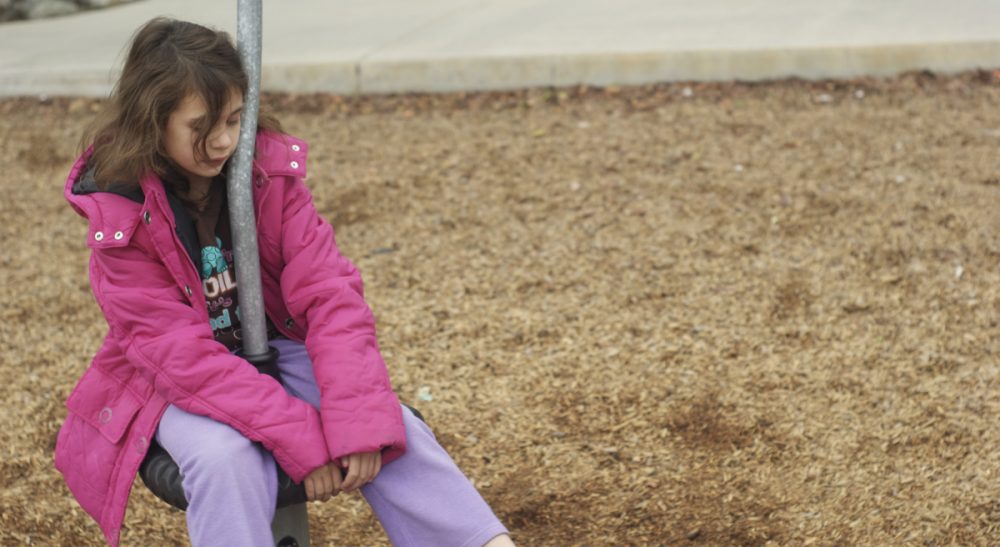Advertisement
Heavy Meddle: Our Kids Are No Longer Friends. Does That Mean We Can't Be?

Welcome Meddleheads, to the column where your crazy meets my crazy! Please send your questions to email. Right now. Not only will you immediately feel much better, you’ll also get some advice.
Hugs,
Steve
…
Dear Steve,
Through the years, we've become friends with another set of parents from elementary school. We love the parents, but our daughters, as they have gotten older, no longer like the kids.
One of my daughters refused to go trick-or-treating with one of their girls because, she said, the girl is a bully. I felt like I had to side with my daughter and hurt this mother's feelings. I avoided her texts all Halloween, then ran into her in the neighborhood.
At one time, my daughter was best friends with this girl, and we became good friends with the parents. Now, the girls don't get along. I feel like it’s not fair to force my kids to play with their children, but when I asked the parents to go out without the kids, they weren't interested. Now we aren't friends. When I was a kid, we played with other people’s kids whether we liked them or not. Our parents did not ask for our opinions.
Perhaps that’s a better way?
Thanks,
Not Kidding

…
Dear Not Kidding,
Yeah, you’re right — at least as I remember it. My parents (and others of their generation) put a greater emphasis on their own social needs. I, too, was stuck hanging out with kids I didn’t especially like. We all survived. So there’s a part of me that does feel our own, more child-centered rearing has become too fraught. Too often, parents wind up sacrificing their own desires to those of their children.
The notion that parents can only be friends if their kids get along feels perversely self-depriving, especially given how fickle kids can be. Whatever happened to adults who happen to be parents having relationships independent of their children?
And yet this sounds like your situation precisely. When you asked these parents to spend time without the kids, they declined. And it’s significant that you refer to them as “parents” here, as if they really only exist relative to their children.
A part of me wants to say: Well, geez, how much of a loss is this really, if these folks refuse to socialize with you unless the kids are in tow? But I realize that it’s more complicated. Your girls were best friends. Now your daughter wants nothing to do with their daughter and accuses her of being a bully. I can see why you’d be protective of your daughter. And I suspect that your friends are hearing a very different story, one that has more to do with their daughter feeling spurned. If the situation were reversed, you’d probably be hurt too — out of loyalty, if nothing else.
But you also say in your letter that you were good friends with this couple, and you clearly still want to be friends with them. I wonder if it’s possible to express this desire, while also acknowledging that your daughters are on the outs? Being honest and forthright is almost always a better course of action than, for instance, ducking someone’s text messages. I get that you felt trapped. But the net result was that you hurt her feelings. You allowed the rift between your daughters to affect the way you treated her.
The notion that parents can only be friends if their kids get along feels perversely self-depriving, especially given how fickle kids can be. Whatever happened to adults who happen to be parents having relationships independent of their children?
But again: Don’t you want a friendship that isn’t contingent upon your children getting along? If so, you have to treat this woman as a friend, not as the mother of a girl your daughter doesn’t like at the moment.
I certainly understand how the social life of parents with young children winds up centering around the kids. But it sounds to me like your own kids are a bit older. There’s no reason to force your daughter to hang out with a girl she considers antagonistic. But there’s also no reason that you shouldn’t be able to go out to dinner with her parents.
So I’d advise you to apologize to this woman for avoiding her texts, and explain how you feel a bit hamstrung because your daughters aren’t getting along. In so doing, I’d avoid any assignation of blame. Instead, I’d emphasize that you value her friendship and that of her husband, and that, while it’s unfortunate to have daughters who are at odds, it shouldn’t scotch your friendship.
Unless the bullying your daughter reports is serious and persistent, I’d let them work it out. After all, kids need the space to work out their own relationships, just as parents do.
In short, because you value this friendship, it’s probably worth pushing a little harder for an adults-only get together. If this couple still declines, then you may have to question how real the friendship was in the first place.
Good luck,
Steve
♥
Okay folks, now it's your turn. Did I get it right, or muck it up? Let me know in the comments section. And please do send your own question along, the more detailed the better. Even if I don't have a helpful response, chances are someone in the comments section will. Send your dilemmas via email.
Steve Almond is the author of the book "Against Football."